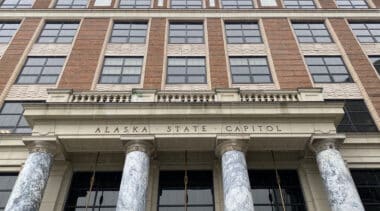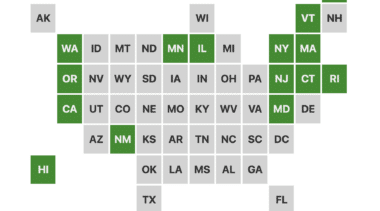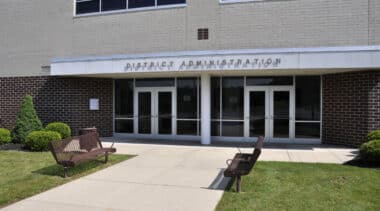-
Colorado Springs doesn’t need to build public broadband
Data suggest that private interests in the market may make public broadband infrastructure unnecessary and ultimately a waste of taxpayer dollars.
-
How Alaska’s defined contribution plan and supplemental annuity plan compare to the gold standard
Alaska's retirement plans meet best practices in some areas but need some improvement in other areas.
-
Express toll lanes can reduce traffic and improve bus service
Federal Highway Administration data shows more than 60 express toll lane projects are in operation across the country.
-
The public pension systems signing on to politicized ESG investment efforts
State and local public pension systems that have signed on to the Ceres Investor Network on Climate Risk and Sustainability and Climate Action 100+.
-
Better transparency can improve public school open enrollment in most states
Transparent open enrollment reporting is key to developing a level playing field for students.
-
Users, not taxpayers, should pay for the inland waterways system
The current waterway funding system is unstable and costs taxpayers hundreds of millions of dollars a year.
-
The last gasp of 20th-century NASA
The new space paradigm means NASA should buy services from the rapidly developing competitive marketplace, not through its traditional procurement process.
-
The NCAA should embrace the free market when it comes to player compensation
The NCAA is hell-bent on capping how much players can earn from name, image and likeness deals.
-
FDA targeting First Amendment rights of non-dairy milk sellers
The unconstitutional move comes at the urging of powerful dairy-milk producers’ lobbies.
-
New York shifts more public pension costs to taxpayers
New York's state budget reversed several major pension reforms enacted in 2012.
-
A simple way to increase competition and reduce airfares in the US
Congress should consider relaxing the prohibition on airline cabotage and build on the success of domestic airline deregulation.
-
The gas tax is no longer a reliable revenue source
But many states aren't testing mileage-based user fees or looking for replacements to fuel taxes.
-
Policymakers should focus on improving participation rates in retirement plans
The Bureau of Labor Statistics reported in 2021 that 68% of private industry workers had access to retirement benefits through their employer, with 51% choosing to participate.
-
Texas dangerously inserts politics into pension investing
The Texas Comptroller banned financial firms it claims are hostile to oil and gas industry from doing business with Texas state agencies and pension systems.
-
Public pension funds should consider risks before plunging too deeply into private credit
Public pension fund managers should weigh risks carefully and avoid over-committing to this asset class.
-
Interstate trade in cannabis should begin immediately
All states with regulated cannabis markets prohibit the transfer of any cannabis inventory across state lines.
-
Western states facing water cuts should look at Arizona’s recent water legislation
Arizona's lawmakers recognized the need to find creative ways to overcome water problems that will likely intensify.
-
Increases in education spending have little correlation with actual student counts, data show
Our analyses show almost universal education spending increases across all states between 2002 and 2020 while at the same time, many states struggled to cope with shrinking K-12 student enrollments.

















